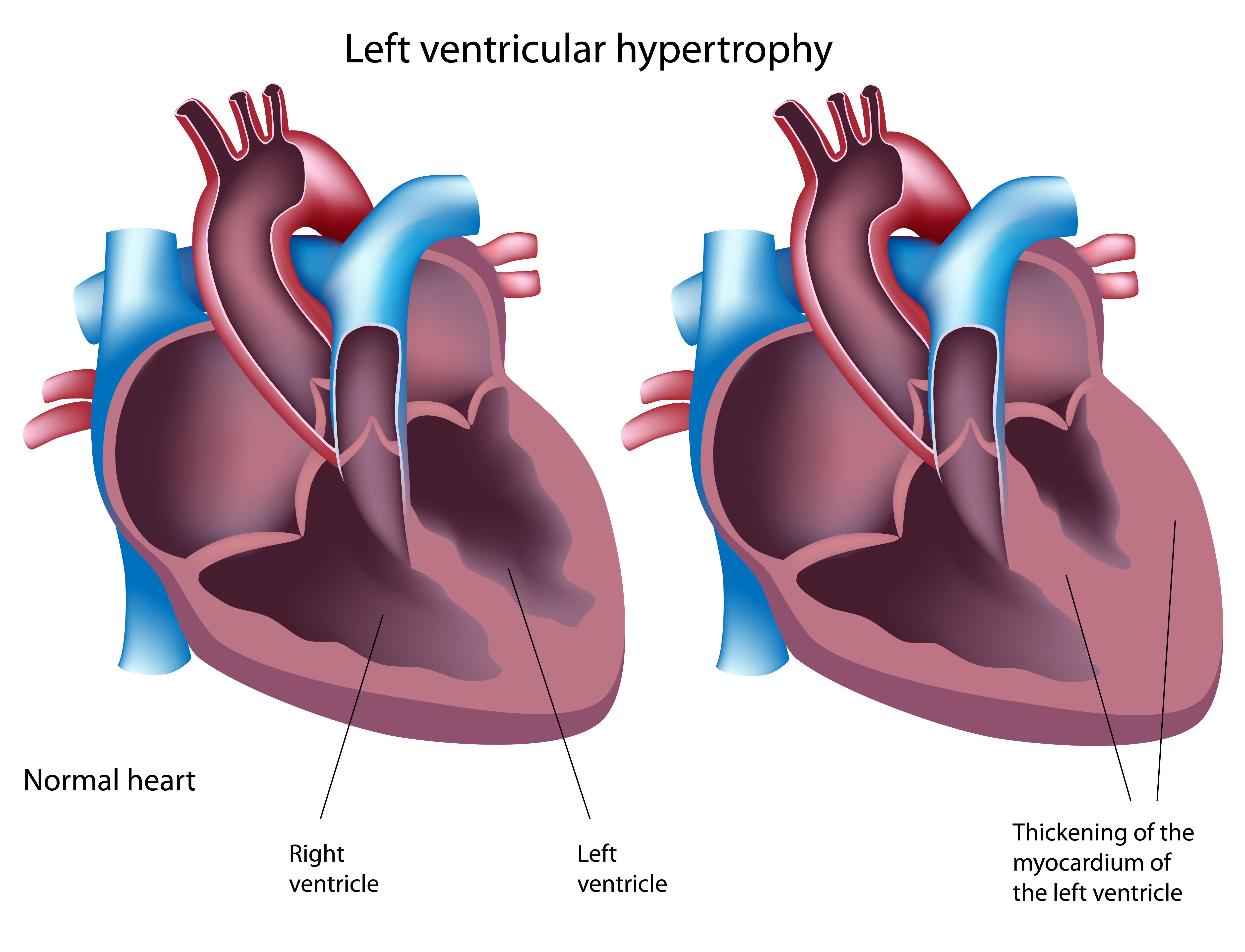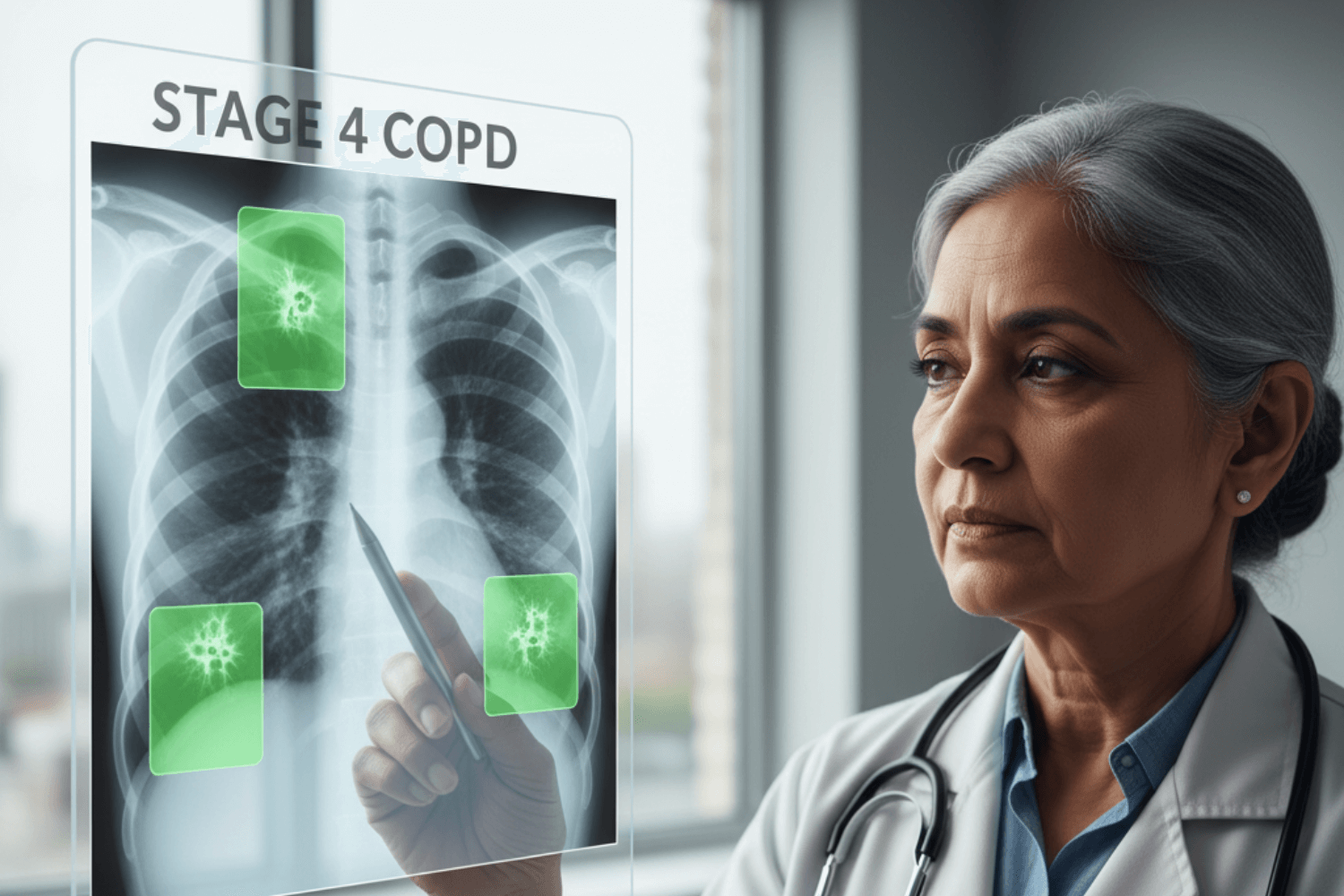
Left ventricular hypertrophy is a cardiac condition that can affect the heart muscle’s ability to pump blood and regulate blood pressure. But what exactly is this condition, and are there warning signs and symptoms? Moreover, how is this condition diagnosed and treated?
Today, Carda is here to talk about left ventricular hypertrophy, including treatment options that can help support your heart health. Read on for tips on how to support your overall cardiac wellness with Carda.
What Is Left Ventricular Hypertrophy?
Left ventricular hypertrophy (LVH) is a cardiac disease that occurs when the walls of the left ventricle thicken or stiffen, increasing blood pressure.
The left ventricle is the lower left chamber in your heart muscle and the primary chamber that pumps blood to maintain your circulation. This ventricle moves blood into the aorta, the artery that is responsible for delivering oxygen-rich blood to the rest of your body.
A person develops a left ventricular heart disease when the muscles in the left ventricle have to work harder to circulate blood, causing the ventricle to thicken. With a greater wall thickness, the heart chamber has a more difficult time pumping out enough blood to circulate to the rest of the body.
This can eventually cause high blood pressure, heart arrhythmias, heart diseases, and sometimes even heart failure.
What Causes Left Ventricular Hypertrophy?
High blood pressure, or hypertension, is one of the most common causes of left ventricular hypertrophy. When your diastolic blood pressure elevates, your heart has to work harder than it usually would in order to maintain proper circulation. As it pumps harder, the muscle can increase in size and thickness over time, leading to left ventricular hypertrophy in hypertensive patients.
In addition to hypertension, there are other medical conditions, such as hypertrophic cardiomyopathy, that strain and stiffen your heart muscle which can be potential causes of LVH. Any medical condition that causes the heart muscle to overwork itself can potentially lead to left ventricular hypertrophy. This is because anytime the heart feels overwhelmed, its muscle tissues can react by increasing their thickness.
For example, a heart arrhythmia, atrial fibrillation, or any other abnormalities in the conduction of electricity in the heart can lead to LVH because the abnormal heartbeat pattern can make your heart work harder to function properly. A condition known as aortic valve stenosis, which narrows the aortic valve and contributes to pressure overload, can also cause LVH.
Diabetes is also a risk factor for developing LVH, as is cardiac aortic enlargement.
What Are the Symptoms of Left Ventricular Hypertrophy?
Signs and symptoms of left ventricular hypertrophy can include:
- Shortness of breath
- Chest pain
- Heart palpitations
- Fainting
- Dizziness
- Lightheadedness
- Leg swelling
Often, a person can go a long period of time before developing symptoms for left ventricular hypertrophy because the disease progression can be slow. When symptoms do present, this is usually a sign that the disease is worsening.
How Is Left Ventricular Hypertrophy Diagnosed and Treated?
The diagnosis of left ventricular hypertrophy can be difficult in its earliest stages when no symptoms are usually present. However, a healthcare provider may be able to detect LVH through certain tests and screenings.
Once you receive a left ventricular hypertrophy diagnosis, it is important to follow up with your healthcare provider frequently. Without proper treatment, left ventricular hypertrophy can lead to a heart attack (also called a myocardial infarction), stroke, or even heart failure.
Let's take a closer look at the different ways that LVH is diagnosed, as well as different treatment options to address the diagnosis.
Diagnosis
Left ventricular hypertrophy has a very gradual disease progression, meaning a person could go years without noticing any symptoms. However, if your healthcare provider or cardiologist orders routine screening tests, such as an electrocardiogram, an echocardiogram, or a magnetic resonance imaging (MRI) image, these tests can indicate whether a person has LVH.
Electrocardiography uses a machine to monitor and record your heart's electrical signals. Every time your heart beats, it transmits an electrical wave through its chambers, which prompts the heart to squeeze and pump out blood to circulate to the rest of the body.
Measuring the level of electrical activity in your heart muscle is a way to indicate whether areas in the heart muscle are overworking themselves.
An echocardiogram, also known as a cardiac ultrasound, relies on high-frequency sound waves in order to yield images of the heart muscle and detect heart valve problems. Cardiologists can look at the echocardiographic images to evaluate how blood flows through the heart and each heart valve, as well as the state of your left ventricular mass.
An MRI can also provide images of the heart muscle to depict how well your heart accomplishes blood flow and circulation.
Medications
Medications that work to lower blood pressure (antihypertensives) can help treat left ventricular hypertrophy. Angiotensin-converting enzyme inhibitors (ACE inhibitors), as well as angiotensin II receptor blockers (ARBs), are medicines that widen blood vessels to enhance blood flow and decrease blood pressure.
Moreover, calcium channel blockers can also help to widen blood vessels, improve blood flow, and decrease blood pressure.
Beta-blockers are medications that help regulate heart rate by mitigating the amount of force it takes for the heart muscles to pump and circulate blood.
Your healthcare provider may also prescribe you a diuretic (also known as a water pill) to cause more frequent urination. This eliminates more fluid from your body, and the less fluid buildup you have, then the lower your blood pressure tends to be.
Medical Procedures
Depending on the underlying cause of your left ventricular hypertrophy, your healthcare provider may refer you to a cardiologist for a medical procedure.
If you have a heart valve disease that causes left ventricular hypertrophy, then an operation that uses a catheter to fix or altogether replace the damaged valve may be necessary.
Additionally, if LVH severely interferes with the heart's ability to pump blood, then heart failure can result over time. As such, your cardiologist may recommend a surgery that improves the heart's pumping abilities and relieves any blockages that diminish blood flow circulation.
Healthy Lifestyle Habits
Lifestyle habits that can help support heart health include a well-balanced diet, regular exercise, weight management, and stress management.
A heart-healthy diet is one rich in:
- Fruits
- Vegetables
- Whole grains
- Nuts
- Seeds
- Lean fat and protein sources
- Low-fat dairy
Additionally, a heart-healthy diet limits the amount of processed or refined carbohydrates that we should consume.
Engaging in consistent physical activity, even if it just means taking a slow walk, is an important part of a heart-healthy lifestyle. This is why staying active can help support a healthy blood pressure. Even exercising for a brief period each day is important.
Eating a heart-healthy diet and engaging in regular physical activity can help you manage your weight, which can, in turn, help support overall health. Those who are obese are at an increased risk for developing LVH because obesity can cause high blood pressure.
High-stress environments are another factor that can influence LVH. Building time into your schedule each day for self-care is one way to help manage your stress and help support heart health. It is important to structure your day to allow time for meditation, mindfulness, hobbies, rest, and connection with friends and loved ones.
Prevention
Lifestyle changes that include limiting or avoiding alcohol intake, as well as abstaining from smoking, can help prevent left ventricular hypertrophy from developing.
Alcohol, in particular, can elevate your blood pressure, which can put you at an increased risk for LVH. Managing your stress and continuing your heart-healthy lifestyle habits related to diet and exercise are also important ways to help prevent LVH.

The Bottom Line
Left ventricular hypertrophy is a cardiovascular disease that affects the lower left chamber in the heart muscle. A person with an LVH diagnosis has thickened walls in the left ventricle chamber of their heart, which can cause stiffness and heart muscle weakness.
The most common cause for LVH is high blood pressure, although any other medical condition that has the potential to strain the heart muscle can cause this cardiac condition to present.
If your doctor diagnoses you with LVH, they may prescribe medications, a medical procedure, or lifestyle changes in order to help treat this condition. Additionally, joining a cardiac rehabilitation to focus on strengthening your heart muscle and preventing disease progression can be an incredibly helpful and rewarding experience.
A fully virtual cardiac rehabilitation program like the one that Carda offers can be just as effective as an in-person rehab experience and can save you a lot of time and money in the process. Talk to your healthcare provider today for a referral and sign up online to start your journey to cardiac wellness.
Sources:
What is Left Ventricular Hypertrophy (LVH)? | American Heart Association
Electrocardiogram (ECG or EKG) | American Heart Association
Left ventricular hypertrophy Disease Reference Guide | Drugs.com
Left ventricular hypertrophy - Diagnosis and treatment | Mayo Clinic

.avif)






